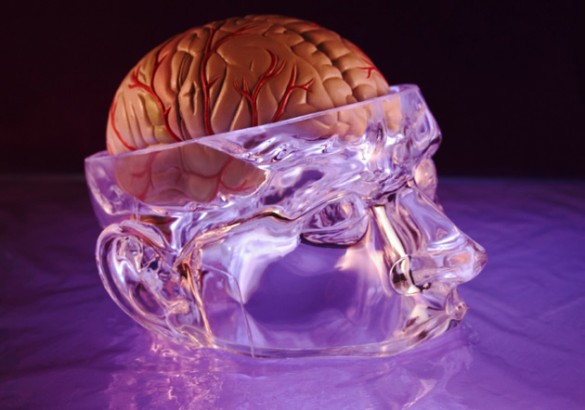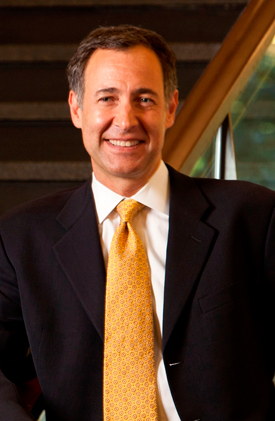
A research network based at Vanderbilt University that has pioneered research into the implications of neuroscience for criminal justice has been awarded a $1.4 million grant by the John D. and Catherine T. MacArthur Foundation.
To date, the MacArthur Foundation has contributed more than $6.2 million to the research network. The new grant will push that total to more than $7.6 million.

“The MacArthur Foundation was the first to recognize that the implications of neuroscience for criminal justice could be positive or negative,” said Owen Jones, New York Alumni Chancellor’s Chair in Law and professor of biological sciences at Vanderbilt and director of The MacArthur Foundation Research Network on Law and Neuroscience.
“Its investment has enabled researchers and policymakers to get out in front of developments,” Jones said.
The MacArthur Foundation Research Network on Law and Neuroscience was created to help the legal system avoid misuse of neuroscientific evidence in criminal law contexts and explore ways to deploy neuroscientific insights to improve the fairness and effectiveness of the criminal justice system. For the past four years, the research network has worked toward those goals through six overlapping, interrelated working groups, which in barely four years have published results on more than half of 60-plus planned projects.
“I’ve never seen an interdisciplinary team as smart, collaborative, nimble and hardworking as this one,” Jones said.
The effects of race on threat perception
The new grant will allow completion of existing projects and enable the network to leverage its recent findings into deeper insights about memory (led by Anthony Wagner, director of the Stanford Memory Lab at Stanford University) and the effects of race on threat perception. The working group on threat perceptions is led by BJ Casey, Sackler Professor of Developmental Psychobiology and director of Sackler Institute for Developmental Psychobiology at Weill Medical College of Cornell University.
“Police violence toward minority suspects is chronic and tragic,” Jones said. “And behind every shooting is a cascade of perceptions, including threat assessments. With the new funding, the network will begin to explore how the brain’s perception of race affects both perception of threat and downstream impulsive behavior.”
Other examples of achievements of the research network so far:
- A Primer on Criminal Law and Neuroscience, a book for judges and practitioners on where, when and how neuroscience can and cannot be useful in legal contexts;
- Law and Neuroscience, a book which has helped found the interdisciplinary topic as a field of inquiry;
- Aiding the legal system’s efforts to distinguish between legitimate and illegitimate uses of neuroscience in criminal justice proceedings;
- Clarifying the relevance of neuroscience to juvenile justice reform;
- Demonstrating that under some conditions, memory for a previously encountered face can be decoded from a person’s brain patterns;
- Showing that changes in jury instructions can yield improvements in fair juror functioning and combat juror confusion;
- Identifying the circuitries and interactions involved when analytic regions of the brain, during punishment decisions, suppress the effects of emotional reactions;
- Analysis showing judges should rule against the admissibility of fMRI-based lie detection testimony because it is presently unreliable; and
- The paper “Group to Individual (G2i) Inference in Scientific Expert Testimony,” published in The University of Chicago Law Review, which set forth a set of best practice guidelines for evaluating expert testimony that involves statements about a group and an individual. The paper has been citied 12 times, including in appellate court documents, a cert. petition to the United States Supreme Court and numerous secondary sources.
Members of the research network include:
- Owen Jones, New York Alumni Chancellor’s Chair in Law and professor of biological sciences at Vanderbilt University;
- Richard J. Bonnie, Harrison Foundation Professor of Medicine and Law; professor of psychiatry and neurobehavioral sciences; director, Institute of Law, Psychiatry and Public Policy; professor of public policy, Frank Batten School of Leadership and Public Policy, University of Virginia;
- BJ Casey, Sackler Professor of Developmental Psychobiology; director of Sackler Institute for Developmental Psychobiology, Weill Cornell Medical College, Cornell University;
- Andre M. Davis, Judge, United States Court of Appeals for the Fourth Circuit;
- David L. Faigman, John F. Digardi Distinguished Professor of Law; associate dean of the UCSF/UC Hastings Consortium on Law, Science and Health Policy, University of California, Hastings College of the Law;
- Morris Hoffman, judge, Second Judicial District Court, Colorado;
- Read Montague, professor, Virginia Tech Carilion Research Institute; professor of physics; professor of psychiatry and behavioral medicine, Virginia Tech; professor, The Wellcome Trust Centre for Neuroimaging, University College, London;
- Stephen J. Morse, Ferdinand Wakeman Hubbell Professor of Law; professor of psychology; professor of law in psychiatry, University of Pennsylvania;
- Marcus E. Raichle, professor of radiology; professor of neurology; professor of anatomy and neurobiology, Washington University in St. Louis;
- Jennifer Richeson, John D. and Catherine T. MacArthur Foundation Professor of Psychology, Northwestern University;
- Elizabeth Scott, Harold R. Medina Professor of Law, Columbia University;
- Laurence Steinberg, Distinguished University Professor of Psychology, Temple University;
- Kim Taylor-Thompson, professor of clinical law, New York University School of Law;
- Anthony D. Wagner, professor of psychology; director of the Stanford Memory Lab; associate director of the Cognitive and Neurobiological Imaging Center, Stanford University; and
- Gideon Yaffe, professor of law; professor of philosophy; professor of psychology, Yale University.